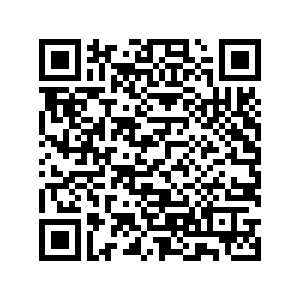WINDHOEK, Feb. 10 (Xinhua) -- Women of the informal settlement in the Otjomuise area in the Namibian capital, Windhoek, are transforming discarded waste into creative and stylish home products to generate sustainable incomes and protect the environment.
The Sew Good Namibia project, an informal group of local craftswomen, was launched in July 2019 to upcycle waste supplies donated by interior design stores and individual supporters. This largely comprises high-quality discontinued manufacturers' stock -- unwanted materials, including wallpaper samples and a wide range of luxury furnishing-fabric swatches.
The aim is to repurpose these waste materials so that they don't end up in a landfill, said Mel Kelly, volunteer manager of the Sew Good Namibia project.
"The environmentally friendly disposal of clothes and fabric is an enormous problem globally. We hope to reduce non-biodegradable waste and combat the global issue of waste pollution while promoting the value of upcycling in Namibia," she said.
The project supports highly disadvantaged women through a sustainable production model. The project started with just two craftswomen creating a few shopping bags and other items in their spare time. It has grown to include other people in the Otjomuise, who prepare fabric samples or sew products on behalf of the project from their homes in the informal settlement.
Amory Tjipepa, who works for a security unit, joined the project at its inception. The project enabled her to incorporate her passion for sewing into expanding income-generation activities to meet her livelihood needs. Therefore, it is more than just a gesture toward environmental protection for her.
"Not only do we bring garbage to life, but I also contribute to women's empowerment by leading other members affiliated with the project as we work to reduce waste and pollution," said Tjipepa, now a senior member of the group.
Finished items are delivered to retail outlets in Namibia's capital and coastal area and to individual customers who have seen items on the group's social media. The team also sells the products at local markets, an eco-living shop in the United Kingdom, and online.
The team also actively explores new outlets amid tough competition. The craftswomen recently introduced the "PatchWorx" line of bags and clothes in response to requests for products made from tiny cotton patches in the indigenous Nama tribes' cultural tradition.
"The motivation is also to initiate new products to diversify production to increase our market share and support growth of the local economy," Tjipepa said.
The project also donates stock it receives but cannot utilize in its creations.
"The project uses most of the luxury furnishing pieces we receive; what we cannot use, we offer in bulk to other craftspeople for a small donation that goes towards buying our thread, zips, and swing tags," she added.
The project maximizes social media platforms to market its products. The team also takes orders for tailor-made bigger items such as rugs and quilts through WhatsApp since -- to keep overheads low -- the project does not have a physical factory or shop. "To keep afloat, we hustle! Big time," said Kelly, the manager.
Despite positive growth even during the pandemic, some issues persist. "Challenges include maintaining sustainable sales as the local market of bread-and-butter items such as our shopping bags is over-saturated. We also struggle with maintaining our sewing machines and an inability to exploit economies of scale," she said.
Meanwhile, the project is looking to expand its clientele to include overseas visitors returning to Namibia, a market badly affected by the COVID-19 outbreak in 2020 and 2021.
The project also hopes to expand in international markets by selling its goods in more shops in the United Kingdom and other parts of Europe, although shipping costs are a massive constraint. Time is also continuously invested in developing new product lines to launch in the marketplace and refining the producers' skills.
Sew Good Namibia is looking to alter Namibian customers' perspectives so that they instinctively choose local, eco-friendly items. "The project members must be active advocates for this message as it underpins our unique selling point," Kelly said. ■
